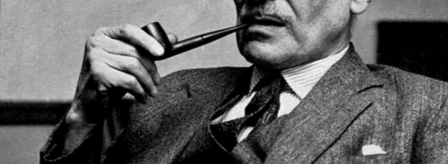| 5 mins read
The fact that Labour has just suffered its worst general election result since 1935 is being widely quoted.
It’s meant to be mark of how bad things are for the party. However, in one of the more audacious grasping of straws of recent days, I’ve heard it said that because Clement Attlee – the ultimately triumphant Clement Attlee – presided over that 1935 defeat, all is not lost for Labour and whoever succeeds Jeremy Corbyn.
If anyone is consoled by that thought, they ought to open a history book.
First, 1935 was actually a recovery for Labour from the far greater disaster of 1931. That year, in extraordinary circumstances, three of Labour’s beloved leaders (including the prime minister and chancellor of the exchequer) left the Labour party and took up positions in a Tory-dominated national government.
Second, Attlee had been leader of the party for just 15 days when the 1935 election was called. Indeed, he was merely ‘caretaker leader’ until his position was confirmed in the days following the election when the new parliamentary Labour party of 154 MPs (up from 46) made his position permanent after a second ballot.
That election took an afternoon out of the Labour party’s time – and this, of course, is the real difference between now and 1935. The kingmakers in Attlee’s day were the Labour MPs. Today they are the individual party members.
Here lies Labour’s entirely self-inflicted problem. Ed Miliband’s legacy to the Labour party was to leave it with a method of choosing a leader that makes it almost impossible for the party to win a general election.
This is because political activists are not like the ordinary electorate. They are more ‘advanced’ in their views, they tend to value compromise less, they frequently believe principles are more important than power, and they can draw as much satisfaction from protest and even political martyrdom as from legislative achievement and economic competence.
Parties could not survive without activists, even in the digital age. But when the electorate consists exclusively of political activists, the wrong credentials are admired and the wrong qualities are rewarded.
In particular, Momentum, with its well-advertised contempt for Tony Blair and its amazing indifference to his serial victories at the polls, illustrates this well. If the rules aren’t changed in the next few weeks, Labour will again fail to elevate any of its most electable men and women to the leadership. The beauty contest will be won by the Labour MP who can pull the scariest face.
As a thought experiment we could speculate on who would have won a leadership contest in the Labour party in the late 1930s if the current rules had applied. It certainly wouldn’t have been Attlee, who was hardly known outside east London. It probably wouldn’t have been Herbert Morrison either, for all his success in taking control of the London County Council in 1934. If the NEC elections are anything to go by, the leading candidates would have been the two Labour lawyers, Stafford Cripps and DN Pritt.
Both these figures had a touch of the Jeremy Corbyn about them. Both were on the far left of the party. They played to large enthusiastic Labour audiences and Left Book Club rallies up and down the country. They were militantly anti-Fascist but dead set against Britain rearming in the face of the dictators. They hated Hitler but tended to draw a moral equivalence between the depredations of Nazi Germany and the British empire. They talked constantly about the working class without having any direct (or indirect) experience of working-class life and – certainly in Pritt’s case – they were deeply in love with the Stalinist experiment taking place in the Soviet Union. The year Pritt gave the Zinoviev show trial a clean bill of health was the year he won his position on the NEC.
The parliamentary Labour party had little time for Cripps and Pritt, and certainly the TUC didn’t. Crucially, these institutions were where the party’s soul resided and from where its impetus was still derived.
What ended up happening? Cripps was finally expelled from the party in 1939 after continuing to support a Popular Front campaign in defiance of party policy. Pritt was ejected after welcoming the Soviet invasion of Finland.
It is frightening to imagine what would have happened to Labour had either man been able to translate his popularity with the grassroots members into a successful bid to lead the party. Fortunately that gift remained in the hands of the 154 Labour MPs who won their seats in the 1935 election. Under Attlee – socialist certainly, but pragmatic, patriotic, and obsessed with winning power – the seeds were sown in these years for the harvest of 1945.

